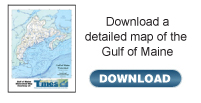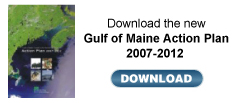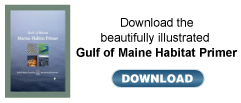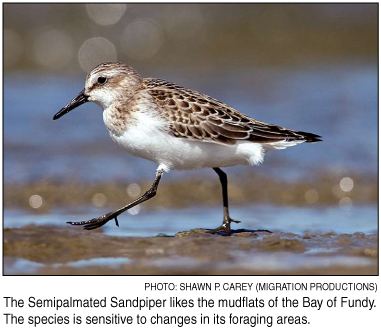
Climate change and the Gulf of Maine
By Anne Hayden
The question is no longer if, or even when, climate change will affect the Gulf of Maine. The question is how—and how much? What will climate change mean for the ecosystem and the fishermen, coastal communities, and other stakeholders to whom it is so important?
One leading scientist warned at a recent conference that “there will be surprises.”
Understanding the potential impact of climate change on the Gulf, from a scientific perspective, is not a simple exercise. First, much of what we know about climate change is averaged over a global scale.
Understanding what an average increase of 2-4 degrees C over the next 100 years, as predicted by the Intergovernmental Panel on Climate Change (IPCC), means for the Gulf is complicated by the fact that the polar regions are warming faster than the equator.
Furthermore, the transfer of heat from the atmosphere to the ocean varies considerably depending on currents, tides, and winds. In the Gulf of Maine, climate scientists believe that warming due to increasing air temperatures will be somewhat offset by increased flow of cold Labrador Current water into the Gulf as the rate of Arctic sea ice melting increases.
The Union of Concerned Scientists has estimated that the Gulf of Maine will warm as much as 1-2 degrees C over the next 70 years. However, much work remains to be done before models can reliably predict what a warming atmosphere will mean for the Gulf of Maine.
Daniel Schrag, professor of Earth and Planetary Sciences at Harvard, speaking at a symposium in Boston February 5 on climate change and the marine environment, emphasized that “No one knows exactly what is going to happen” as marine waters warm. “I want to make it clear that there will be surprises.”
[Read
more]
|
|
|
|
Changing Course - the lesser known flooding hazard
by Catherine Coletti
Fluvial erosion, or the removal and transport of silt, sand, gravel and other stream bank materials by rivers, happens when development near rivers and streams meet natural processes.
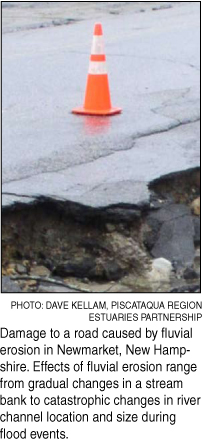
This kind of flooding hazard is less well known than flooding inundation - when land is simply overwhelmed with too much water. It takes into account the movement of water and soil in rivers and, even more important, that rivers must constantly adapt to changes in their paths. Similar to other kinds of hazards, being proactive is the best way to avoid the future damage posed by fluvial erosion.
Effects of fluvial erosion range from gradual changes in a stream bank to catastrophic changes in river channel location and size during flood events.
[Read
more]
|






